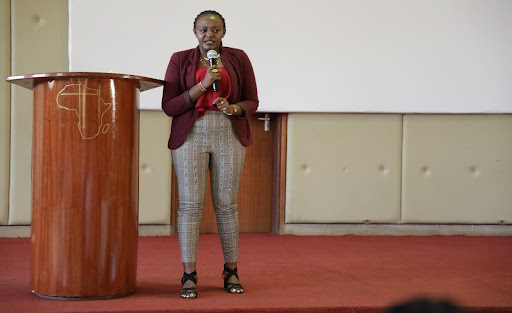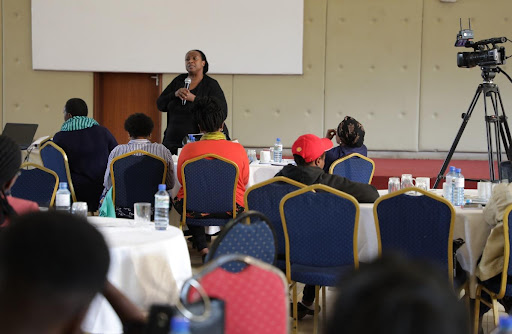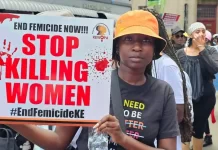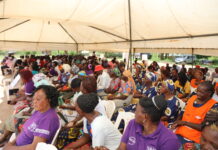By Arasha Soila
Nairobi, Kenya: CRAWN Trust in partnership with independent state institutions, civil society organizations, and human rights organizations held a consultative forum to discuss electoral integrity and electoral laws. The forum was geared to discuss women’s political rights as women still remain underrepresented in positions of power.
The Kenyan Constitution 2010 safeguards the political rights of women, Article 81(b) provides that the electoral process must ensure that not more than two-thirds of the members of elective public bodies shall be of the same gender.
Despite having more women vying for various positions during this election we are still at ground zero as it did not translate to clinching more elective seats. According to a report by Crawn Trust out of the 227 women aspirants who vied only 29 were elected to parliament. Parliament itself is improperly constituted. There have been glaring barriers and biases operating at multiple levels that inhibit the rise of women in the political space.
“Running for office has not been a walk in the path. When I tell you that the environment is uneven for women, it truly is” Sera Thiga, an aspirant in Theta Ward opens up. During the campaigns, Sera says that she underwent online trolling and even physical harassment which exposed her to emotional and physical trauma. In an emotive moment, Sera says, that this made her retract from the online space which made people trash her name as she was stereotyped and deemed as weak and not fit to run for the elections.
Sera continues by saying the fact that she is unmarried also barred her from accessing the council of elders in her community as per the traditional norms. This made it difficult for her to sell her ideas.

“As an aspirant, I had done my job from the boardroom negotiations to the groundwork. I have been a community leader but just being in politics changed the whole narrative. It hits you hard when you know you have given it your all but you are still locked out of the ballot” she adds.
She is however grateful that through the support from women organizations like CRAWN Trust and AMWIK among others she did not give up though not winning the seat.
Speaking during the forum, CRAWN Trust’s Executive Director Daisy Amdany, said that we should stop referring women, youth, and people living with disabilities as special interest groups. “The constitution designates them as formerly marginalized groups with equal rights as anyone else to participate in democratic processes,” she articulated. She continued by saying that women’s participation in the electoral process is essential in achieving the principles of inclusion and equality as provided for in the constitution.
According to Daisy Amdany, civic education should also be undertaken continuously as failure to undertake effective civic education across the election contributed highly to voter apathy. “There is a need to build capacity for meaningful civic education and public participation. We need to continue facilitating and encouraging women leaders in the community through various avenues” she said.
She continued by stating that we complain about the quality of our leaders on the ballot yet we fail to participate in the primary process. “We often obsess over general elections, yet we ignore primary processes like nominations which are the most crucial during the electoral process and enhance inclusivity and integrity. How people get to the ballot boxes matters a lot” she reiterated.
Irene Soila, KHRC Advisor-Political Pluralism, and Diversity, further asserted that for us to promote and enhance electoral integrity, our courts, court orders, and laws must be respected and implemented. “We must also be able to shun and stop aspirants with questionable integrity from the onset” she noted.

Additionally, Jane Kamau from the Office of the Registrar of Political Parties (ORPP) added that people should take up membership in political parties. “There are 89 registered parties, it is therefore important that we join those political parties, buy into their ideologies and fight from within,” she said. Jane also noted that political parties need to continue encouraging marginalized groups to participate and also put in place mechanisms to ensure free, fair, and participatory nomination processes.
During the forum, it was noted that for electoral integrity to be improved IEBC should fast-track the re-introduction of campaign financing regulations among other reforms. Financial constraints were a major issue, especially for women during the campaigns. Campaigns can be quite expensive hence sometimes money becomes an impediment.













